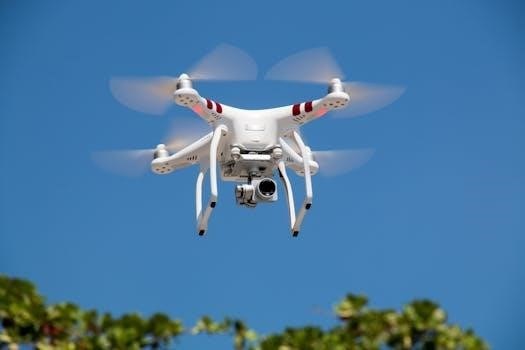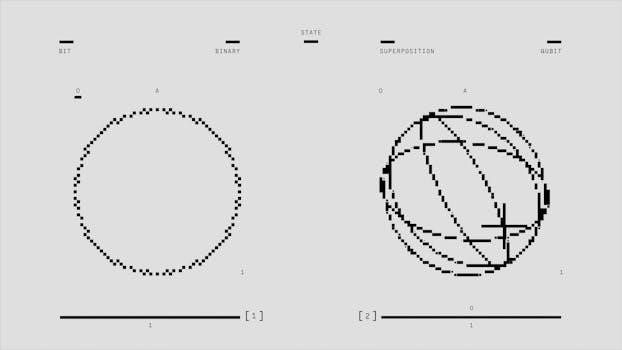This comprehensive guide dives into the world of Mercruiser Alpha One propellers. We will explore various aspects, from understanding your outdrive to selecting the perfect propeller for optimal performance.
Understanding the Mercruiser Alpha One Outdrive
The Mercruiser Alpha One outdrive is a popular stern drive system known for its reliability. Found on boats with 120-300 horsepower engines, understanding its features is crucial for proper propeller selection. Identifying whether you have a Generation I or II Alpha One is the first step. Key features include the gear ratio, which impacts propeller performance. Regular inspection and maintenance are essential for the longevity of the outdrive and maintaining optimal boat performance.
Identifying Your Alpha One Generation (I or II)
Distinguishing between the Alpha One Generation I and Generation II is essential for selecting the correct propeller. Visually, the Gen II has a one-piece bearing carrier, while the Gen I has a two-piece design. The Generation II also features improved water intake and shifting mechanisms. Knowing your generation ensures compatibility with specific propellers and parts. Refer to your boat’s documentation or consult a marine mechanic for accurate identification to avoid potential issues during installation or operation.
Importance of Propeller Selection
Propeller selection is crucial for maximizing your boat’s performance and efficiency. The correct propeller can significantly impact speed, acceleration, fuel economy, and handling. An improperly sized or designed propeller can lead to poor performance, engine strain, and even damage. Factors like boat size, engine horsepower, and intended use all play a role in determining the ideal propeller. Investing time in choosing the right propeller ensures a smoother, more enjoyable, and cost-effective boating experience. Selecting a proper propeller can optimize engine RPM and prevent over or under revving.

Factors Influencing Propeller Choice
Several key factors dictate the ideal propeller choice for your Mercruiser Alpha One. These include boat size and weight, engine horsepower, gear ratio, and the intended use of the boat, influencing overall performance.
Boat Size and Weight
The size and weight of your boat are crucial considerations when selecting a propeller. Larger and heavier boats require propellers that can generate more thrust to get the boat planing efficiently. A propeller with a lower pitch might be necessary to provide the needed initial power. Conversely, smaller, lighter boats may benefit from a higher pitch propeller for increased top-end speed; Matching the propeller to the boat’s displacement ensures optimal performance and fuel efficiency.
Engine Horsepower and Gear Ratio (e.g., 1.81⁚1)
Engine horsepower is a direct indicator of the power available to turn the propeller. A more powerful engine can handle a higher pitch propeller, potentially leading to greater top speed. The gear ratio of your Mercruiser Alpha One outdrive, such as 1.81⁚1, affects the propeller’s rotational speed relative to the engine’s RPM. This ratio is critical for determining the appropriate propeller size to maximize engine performance and avoid over- or under-revving. Matching these factors is essential.
Intended Use (Cruising, Towing, Top Speed)
The primary use of your boat significantly impacts the ideal propeller choice. For cruising, a propeller that provides good fuel efficiency and comfortable mid-range performance is desirable. Towing water skiers or wakeboarders requires a propeller with strong low-end torque for quick acceleration. If top speed is your priority, a propeller designed for maximum speed at high RPMs should be selected. Balancing these needs ensures optimal performance for your specific boating activities.

Propeller Materials and Design
Propellers come in various materials like aluminum and stainless steel, each offering distinct advantages. Design elements, such as the number of blades, also influence performance characteristics for your Mercruiser Alpha One.
Aluminum Propellers⁚ Advantages and Disadvantages
Aluminum propellers are a popular and affordable choice for Mercruiser Alpha One drives. Their key advantage lies in their lower cost, making them a budget-friendly option for boaters. They are also relatively easy to repair if damaged. However, aluminum props are less durable than stainless steel, being more susceptible to dings and flexing. This flexing can reduce efficiency at higher speeds.
Stainless Steel Propellers⁚ Advantages and Disadvantages
Stainless steel propellers offer superior durability and performance compared to aluminum. Their strength allows for thinner blades, enhancing speed and fuel efficiency. They resist flexing, maintaining optimal pitch even at high RPMs. However, stainless steel propellers come at a higher price point. They are also more difficult and expensive to repair if damaged. The increased stiffness can also transmit more vibration to the boat.
Number of Blades (3 vs. 4) and Their Impact
The number of blades on a propeller significantly impacts boat performance. Three-blade propellers generally offer higher top-end speed and efficiency. Four-blade propellers provide better acceleration, smoother ride, and improved handling, especially in rough water. A four-blade prop also excels at lower speeds, offering enhanced thrust for towing or heavier loads. The choice depends on your priorities⁚ speed versus enhanced control and power.

Propeller Sizing and Pitch
Understanding propeller sizing and pitch is crucial. These measurements determine the propeller’s performance characteristics. Correct sizing optimizes RPM, balancing speed and power for your boat’s specific needs.
Understanding Propeller Diameter and Pitch
Propeller diameter refers to the distance across the circle that the propeller blades make as they rotate. Pitch, on the other hand, is the theoretical distance a propeller moves forward in one revolution. A higher pitch means greater distance, while a smaller one is less. Both diameter and pitch significantly affect a boat’s acceleration, top speed, and overall performance. Selecting the right combination is key to maximizing your Mercruiser Alpha One’s potential, which requires careful consideration of boat size, engine power, and intended use.
Determining the Correct Propeller Size for Optimal RPM
Finding the right propeller size is crucial for achieving optimal engine RPM at wide-open throttle (WOT). The goal is to select a propeller that allows your engine to reach the upper end of its recommended RPM range without exceeding it. If your engine can’t reach the recommended RPM, the propeller’s pitch is too high. Conversely, if the engine exceeds the RPM range, the pitch is too low. Water testing with different propellers is often necessary to fine-tune your selection and achieve peak performance.
Using a Propeller Selector Tool (Mercury Marine, Prop Wizard)
Propeller selector tools, like those offered by Mercury Marine and Prop Wizard, can significantly simplify the propeller selection process. These tools typically require information about your boat, engine, and intended use. By inputting details such as boat length, weight, engine horsepower, and gear ratio, the tool will generate a list of recommended propellers. While these tools provide a great starting point, remember that on-the-water testing is still essential to validate the selection and fine-tune performance for your specific needs.
Performance Considerations and Troubleshooting
Understanding how your propeller impacts speed, acceleration, and fuel efficiency is crucial. This section covers troubleshooting common propeller-related performance issues and validating your choice through water testing.
Impact of Propeller Choice on Speed, Acceleration, and Fuel Efficiency
The propeller you choose significantly impacts your boat’s overall performance. A correctly sized and pitched propeller can optimize speed, providing a higher top-end velocity. Similarly, acceleration, or the time it takes to reach planing speed, is heavily influenced by propeller selection. Furthermore, fuel efficiency is directly affected; an inefficient propeller requires more engine power, leading to increased fuel consumption. Matching the propeller to your boat’s specific needs—considering weight, engine horsepower, and intended use—is crucial for achieving a balance between these performance factors.
Troubleshooting Propeller-Related Performance Issues
Experiencing sluggish acceleration or reduced top speed? Propeller issues may be the culprit. Start by inspecting the propeller for damage, such as bent blades or nicks. These imperfections disrupt water flow and diminish performance. Also, verify the propeller is the correct size and pitch for your boat and engine. Over-propping can strain the engine, while under-propping reduces efficiency. Consider factors like boat load and typical operating conditions. If problems persist, consult a marine mechanic to diagnose underlying mechanical issues affecting propeller performance.
Water Testing for Propeller Validation
The ultimate test of a propeller is on the water. After selecting a propeller, conduct a thorough water test. Load the boat with a typical amount of gear and passengers. Observe the engine’s RPM at wide-open throttle (WOT). Compare this to the engine manufacturer’s recommended WOT range. If the RPM is too low, consider a propeller with less pitch. If it’s too high, opt for a propeller with more pitch. Assess acceleration, top speed, and handling. Document the results to fine-tune your propeller selection for optimal performance.
Popular Propeller Brands for Mercruiser Alpha One
Several brands offer propellers compatible with Mercruiser Alpha One outdrives. Popular choices include Quicksilver, known for quality and performance, Michigan Wheel, providing a range of options, and Solas, a trusted name in propeller technology.
Quicksilver Propellers
Quicksilver propellers are a popular choice for Mercruiser Alpha One owners due to their reputation for quality and performance. They offer both aluminum and stainless steel options to suit various boating needs and budgets. Quicksilver propellers are known for their durability and are designed to enhance boat speed, acceleration, and overall handling. They provide propellers designed for different horsepower ranges. Consider Quicksilver for reliable and effective performance, ensuring a smooth and enjoyable boating experience.
Michigan Wheel Propellers
Michigan Wheel propellers provide another solid option for Mercruiser Alpha One drives, offering a diverse range of propellers crafted for different boating applications. Known for their innovative designs and quality construction, Michigan Wheel propellers aim to improve boat performance and fuel efficiency. They have been making aluminum and stainless steel propellers for years. With several designs and sizes, you can find a Michigan Wheel propeller that matches your boating style and requirements.
Solas Propellers
Solas Propellers have made a name for themselves as a trusted brand in the marine industry, offering a wide range of high-quality propellers compatible with Mercruiser Alpha One outdrives. Solas provides boaters with reliable performance and durability. Known for their innovative designs and precision manufacturing, Solas propellers are available in both aluminum and stainless steel, catering to various boating needs and budgets. They are designed to deliver optimal thrust and efficiency.

Propeller Installation and Maintenance
Proper installation and regular maintenance are crucial for maximizing propeller lifespan and performance. This section covers essential procedures and tips to keep your Mercruiser Alpha One propeller in top condition.
Proper Installation Procedures
Installing your Mercruiser Alpha One propeller correctly is vital for safety and performance. Begin by ensuring the propeller shaft is clean and lightly greased. Align the propeller with the shaft and slide it into place. Install the thrust washer, followed by the propeller nut. Tighten the nut to the manufacturer’s specified torque, typically found in your owner’s manual. Secure the nut with a cotter pin or locking tab to prevent loosening during operation. Always double-check that all components are properly seated and secured before launching your boat. A loose propeller can cause serious damage.
Regular Inspection and Maintenance Tips
Maintaining your Mercruiser Alpha One propeller is crucial for longevity and peak performance. Regularly inspect your propeller for any signs of damage, such as bends, cracks, or missing pieces. Check for any fishing line or debris wrapped around the propeller shaft. Clean the propeller with soap and water to remove any buildup. Periodically grease the propeller shaft to prevent corrosion and ensure smooth operation. If you notice any significant damage, consult a professional for repair or replacement. Proper maintenance will extend the life of your propeller.
Comments